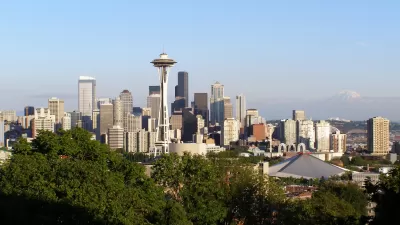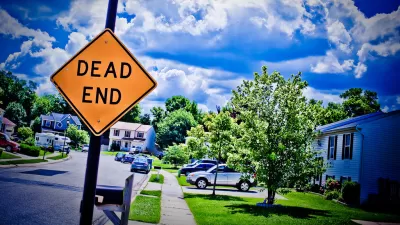The swift rejection of a proposal to upzone residential neighborhoods in Seattle inspired The Urbanist to evaluate the lessons of the episode. One takeaway: don't demonize single-family homeowners.

Robert Cruickshank provides a post-mortem on the attention-grabbing upzone proposal that was more dead than alive on arrival in Seattle:
"For many urbanists, it's been a journey of elation to despair. Just two weeks after the Housing Affordability and Livability Agenda (HALA) proposals were announced, several of its core recommendations have already been abandoned. Facing a growing backlash, Mayor Ed Murray announced he will no longer seek zoning changes in single-family neighborhoods."
Cruickshank blames the failure of the recommendations on a lack of public support for a process that lacked public participation. "The HALA committee finally made the plans public before there had been any meaningful effort to organize grassroots activism to support them—or to explain to Seattle residents why the zoning changes mattered," writes Cruickshank. Offering some advice for how to handle an opportunity like this the next time, and in other cities, Cruickshank says "it's time to treat zoning changes as what they truly are: a political debate." The article follows with more detail about how that lesson could have been applied in the example of the HALA recommendations.
Chuck Wolfe also recently wrote of some of the takeaways he'd identified from the episode, including a hopeful idea that the HALA report could result in a more inclusive city.
FULL STORY: WHY THE HALA SINGLE-FAMILY UPZONES DIED

Montreal Mall to Become 6,000 Housing Units
Place Versailles will be transformed into a mixed-use complex over the next 25 years.

Planetizen Federal Action Tracker
A weekly monitor of how Trump’s orders and actions are impacting planners and planning in America.

DARTSpace Platform Streamlines Dallas TOD Application Process
The Dallas transit agency hopes a shorter permitting timeline will boost transit-oriented development around rail stations.

Bicycles and Books — In Sacramento, Libraries Now Offer Both
Adult library card holders can check out e-bikes and e-trikes for up to one week.

Colorado Landfills Emit as Much Pollution as 1M Cars
Landfills are the third-largest source of methane pollution in Colorado, after agriculture and fossil fuel extraction.

Tulsa Paid Remote Workers $10,000 to Move In — Nearly All of Them Stayed
The Tulsa Remote program generated more than $4 in local economic benefits for every dollar spent.
Urban Design for Planners 1: Software Tools
This six-course series explores essential urban design concepts using open source software and equips planners with the tools they need to participate fully in the urban design process.
Planning for Universal Design
Learn the tools for implementing Universal Design in planning regulations.
City of Mt Shasta
City of Camden Redevelopment Agency
City of Astoria
Transportation Research & Education Center (TREC) at Portland State University
City of Camden Redevelopment Agency
Municipality of Princeton (NJ)
Regional Transportation Commission of Southern Nevada



























